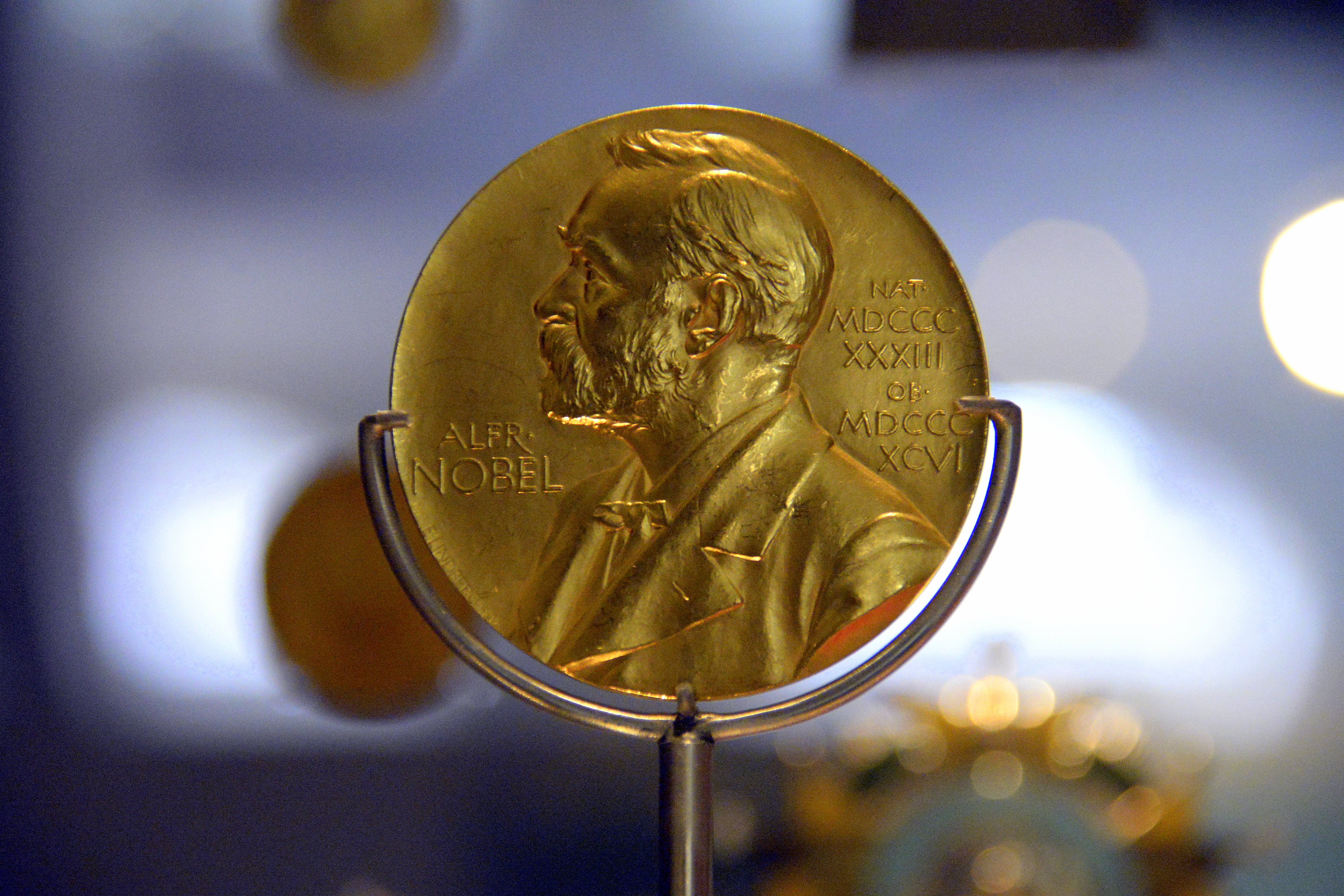- 97. 15.
A timeline of brilliance: the youngest mind, the oldest wisdom, and the 15 Australians who’ve shaped the world through Nobel Prize-worthy achievements.
With Australian chemist Professor Richard Robson FAA FRS being jointly-awarded the Nobel Prize in Chemistry last week for his development of metal-organic frameworks (MOFs), join Nexus APAC as we unpack the storied history and significance of the Nobel Prize in public discourse.
An Explosive Start
Born in Stockholm into a family of engineers on 21 October 1833, Alfred Nobel was a chemist, engineer and inventor. His most prominent contributions include the invention of dynamite in 1867, and the invention of ballistite, a smokeless propellant, in 1887. Nobel’s connection to the production of military equipment was also buoyed by his ownership of Bofors, which he transformed from an iron and steel producer to a major arms manufacturer.
Legend has it that, in 1888, following the passing of his brother Ludvig Nobel, several newspapers erroneously published obituaries of Alfred Nobel. This allegedly included a French newspaper that published an obituary titled ‘The Merchant of Death is Dead’, which stated that Alfred Nobel had developed new ways to “mutilate and kill” and had grown rich as a result. It is believed that the obituary significantly disconcerted Nobel about how he would be remembered.
Signed at the Swedish-Norwegian Club in Paris on 27 November 1895, Nobel’s last will dictated that his fortune be used to create a series of prizes granted “for the greatest benefit to humankind” in physics, chemistry, physiology or medicine, literature, and peace. Nobel bequeathed today’s equivalent of 2.2 billion Swedish kronor (around 360 million AUD) for this endeavour.
The Nobel Economics Prize was not established by Nobel initially, but later in 1968 by Sveriges Riksbank, Sweden’s central bank, which sponsored an additional prize to mark its 300th anniversary, and to acknowledge the emergence of economics as a significant academic discipline.
Process
Nomination forms are sent by the Nobel Committee to around 3,000 individuals in September of the year before the awards are presented, usually to prominent academics in each field.
For the Nobel Peace Prize, governments, former laureates and members of the Nobel Committee are also consulted, nominally due to the subjective nature of the award. From this stage, the Nobel Committee nominates 300 potential laureates who are not publicly named nor personally informed that they have been considered for the prize, with all records being sealed for 50 years.
Posthumous nominations are not presently permitted although there have been exceptions in the past, including the 1961 Peace Prize awarded to former United Nations Secretary General Dag Hammarskjöld who had died in a plane crash in between the time of his nomination and the awarding of prizes.
Joint awardees are permitted, granted that they number no more than three.
2025 Nobel Laureates
Physics
The Nobel Laureates in Physics for 2025, Professor John Clarke, Professor Michel H. Devoret and Professor John M. Martinis, were selected “for the discovery of macroscopic quantum mechanical tunnelling and energy quantisation in an electric circuit”. Using a series of experiments, they demonstrated that the properties of the quantum world can be ascertained in a hand-sized energy system, and that superconducting electrical systems can tunnel between different states of matter, such as through a wall.
Chemistry
“For the development of metal-organic frameworks”, Australian Professor Richard Robson FAA FRS, Susumu Kitagawa FRS and Professor Omar M. Yaghi were awarded the Nobel Prize for Chemistry. Professor Robson is the 15th Australian Nobel Laureate, and the first since former Australian National University Vice-Chancellor and astrophysicist Brian Schmidt AC FRS FAA FTSE in 2011.
Physiology or Medicine
The 2025 Nobel Prize in Physiology or Medicine went to Shimon Sakaguchi, Mary E. Brunkow and Fred Ramsdell “for discoveries concerning peripheral immune tolerance”. They identified the immune system’s security guards, regulatory T cells, which prevent immune cells from attacking our own bodies.
Literature
“For his compelling and visionary oeuvre that, in the midst of apocalyptic terror, reaffirms the power of art”, Hungarian novelist László Krasznahorkai was awarded the 2025 Nobel Prize in Literature. Krasznahorkai is widely known for his dystopian and melancholic works and has won numerous prizes.
Peace
The 2025 Nobel Peace Prize was awarded to the prominent leader of the Venezuelan opposition Maria Corina Machado “for her tireless work promoting democratic rights for the people of Venezuela and for her struggle to achieve a just and peaceful transition from dictatorship to democracy.”
According to the Nobel Foundation, she met “all three criteria stated in Alfred Nobel’s will for the selection of a Peace Prize laureate. She has brought her country’s opposition together. She has never wavered in resisting the militarisation of Venezuelan society. She has been steadfast in her support for a peaceful transition to democracy.”
In response, Venezuela closed their embassies in Norway and Australia citing a “strategic reassignment of resources”.
2025 saw Australia once again etched into Nobel history. From explosive beginnings to transformative legacies, the Nobel Prizes continue to shape global discourse, honouring those whose work elevates humanity. Whether through quantum breakthroughs, life-saving medical discoveries, or the pursuit of peace and justice, this year’s laureates remind us that Alfred Nobel’s vision endures.
Photo credit: Osama Shukir Muhammed Amin FRCP(Glasg)
Latest posts by Nexus APAC (see all)
- Examining Medicine Shortages in Australia - February 7, 2026
- The Secretaries of Federal Departments - January 31, 2026
- Merry Christmas from the Nexus APAC Team - December 19, 2025



